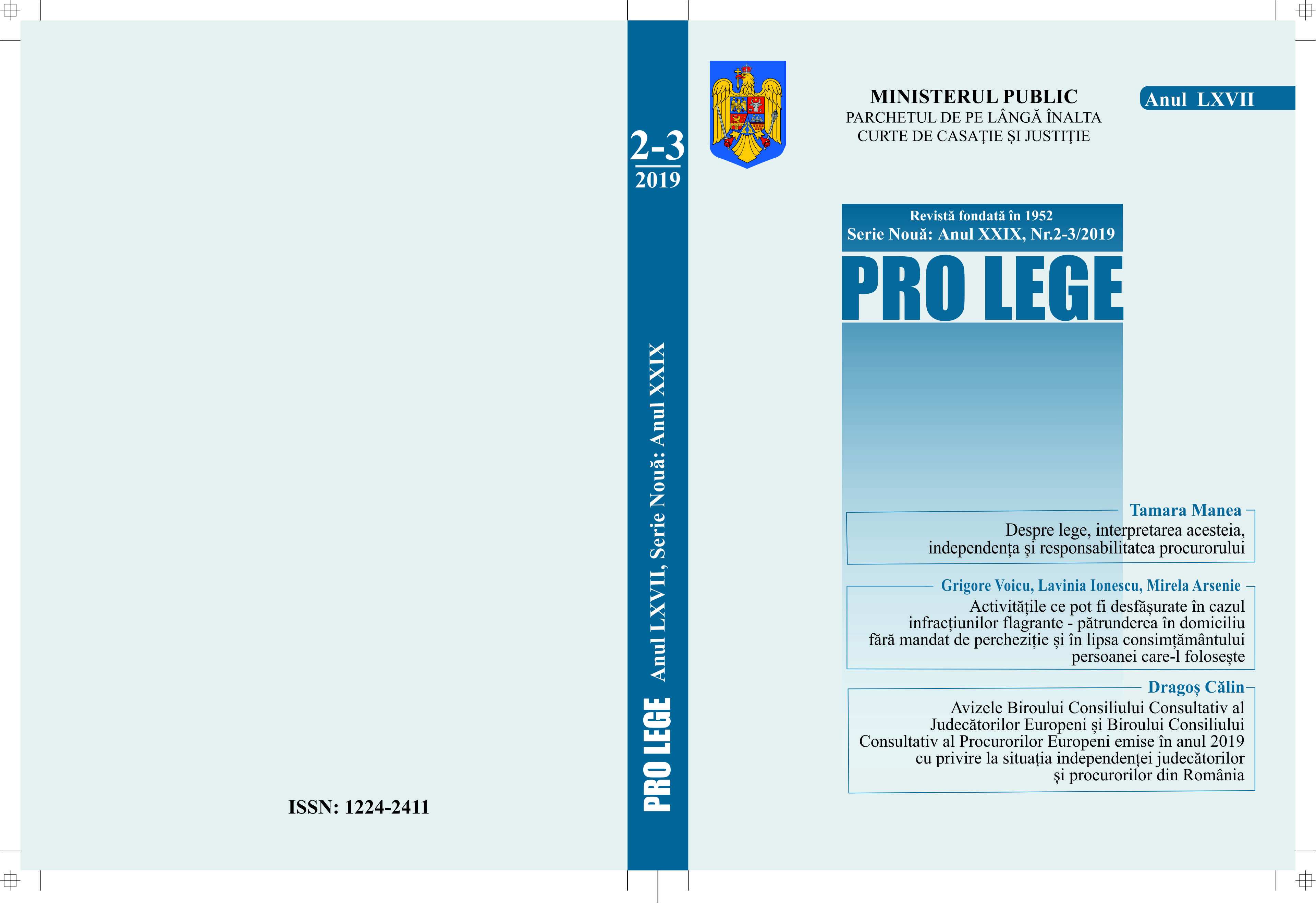Încălcarea dreptului la apărare al inculpatului, precum și a dispozițiilor privitoare la delegarea organelor de cercetare penală în cursul urmăririi penale – nulitate relativă. Acoperirea acesteia de către instanța de judecată.
Infringement of the defendant's right of defense, as well as the provisions regarding the delegation of criminal investigation bodies in the course of criminal investigation – relative nullity. Covering it by the court.
Author(s): Gheorghe IvanSubject(s): Law, Constitution, Jurisprudence, Civil Law
Published by: Universul Juridic
Keywords: hearing; challenging insuring measures; delegation; exclusion of evidence; preliminary camera; right to defense; absolute nullity; relative nullity; criminal prosecution;
Summary/Abstract: The violation of the defendant's right of defense during the criminal prosecution leads to the relative nullity of the acts carried out only in the situation in which there is evidence of an injury that cannot be removed in another way. However, the prosecutor must comply with the legal provisions and take all measures necessary to achieve the right to defense inall its components (assisting the defendant / suspect / civil party / civilly liable party / injured party, lawyer, lawyer participation in the criminal prosecution acts, right to silence, etc.); as a matter of fact, the prosecutor is obliged to act in accordance with art. 10 para. (5) of the new Criminal Procedure Code, and his inaction may be a disciplinary offense. Related to the provisions of art. 282 para. (5) of the above-mentioned Code, the relative nullity cannot be covered by the court if it finds the occurrence of an injury; instead, the court can take steps to restore the acts affected by the nullity. There is no need to exclude, since the means of evidence administered with the violation of the legal provisions may exceptionally be used if this does not affect the fairness of the criminal proceedings as a whole. However, evidence obtained through torture, inhuman or degrading treatment cannot be used in criminal proceedings. The prosecutor may delegate to the criminal investigation bodies several criminal prosecution acts, not being limited to one act of criminal prosecution, as sustained by the defendant, nor obliged to issue a separate delegation ordinance for each of the procedural acts of which performing is to delegate it to the criminal investigation authorities. On the other hand, it is sufficient for the prosecutor to indicate the type of criminal investigation to be carried out (e.g. witnesses). It is not necessary to exclude the statement given by the defendant, since the fact that the prosecutor continued to ask him questions (after the defendant had informed him that he was entitled to silence) does not oblige him to answer, the defendant having the freedom to exercise furthermore, this right, especially since he was assisted by his defender; as a matter of fact, there was no evidence that the prosecutor would have exerted any pressure on the defendant to determine him make statements. Regarding the ordinance establishing the levy, it is worth mentioning that this procedural measure cannot be challenged in the preliminary chamber proceedings, the law regulating in art. 250 of the new Criminal Procedure Code a special procedure for challenging it. However, Government Emergency Ordinance no. 18/2016 has been adopted, by which within the art. 250 of the aforementioned code has been inserted paragraph (51), so that at present the judge of the preliminary chamber has attributions also in the matter of challenging the precautionary measures.
Journal: Revista Pro Lege
- Issue Year: 2019
- Issue No: 2-3
- Page Range: 347-354
- Page Count: 8
- Language: Romanian

